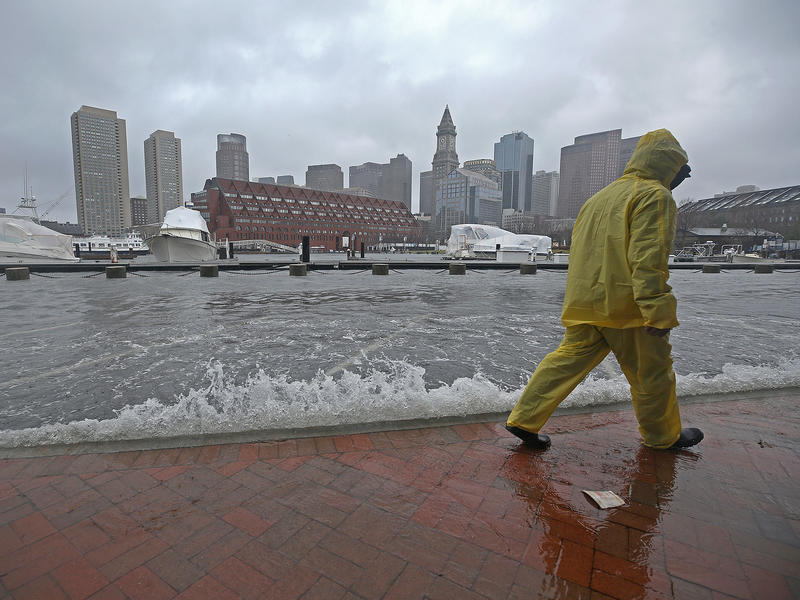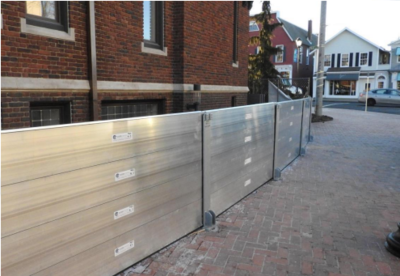Adapting Boston City Hall to new climate conditions
Resilience to climate change risks is fundamental to the City of Boston’s preservation goals.
In order to maintain the rich historic fabric of Boston, historic buildings must be able to withstand sea level rise, increasing storm events, and precipitation. Not only do these events threaten the structure and materials of historic buildings, they also threaten the safety of the occupants and the surrounding community.
To ensure a holistic resilient climate strategy to our built environment, the "Resilient, Historic Buildings Design Guide" provides guidance for preparing historic buildings to withstand evolving climate conditions. One critical strategy outlined in this guide is the use of deployable flood barriers that are to be placed around a property in anticipation of a storm or flood event. The Boston Landmarks Commission recently approved the installation of this type of system at the Congress Street entrance of Boston City Hall, a pending Boston Landmark.
During predicted flooding events the City’s Property Management department will position the temporary protective barriers at the entrance areas to prevent storm water from entering and flooding the building. These barriers are secured by anchors installed into mortar joints at the brick masonry walls of City Hall, and by posts installed into anchors in the paving. . When not in use, these barriers are stored and the building’s historic appearance is restored. The Commission also approved this barrier system at the entrance to the adjacent garage, and approved the replacement of an existing door to the Fire Pump Room with a flood proof door identical in appearance to the existing door.
The City of Boston looks forward to working with owners of historic properties to adapt their buildings and sites to new climate conditions while preserving historic building fabric and design details.
Call for Case StudiesIn order to achieve carbon neutrality by 2050, Boston's 2019 Climate Action Plan Update provides strategies for accelerating action to reduce carbon emissions in Boston, and outlines immediate next steps for zero net carbon new construction in municipal buildings. As we work to incorporate historic preservation into the City’s sustainability and resilient adaptation planning, we are seeking examples of projects seeking to sensitively decarbonize historic buildings while preserving their historic features. If you have a project to share, please contact us at BLC@boston.gov.



